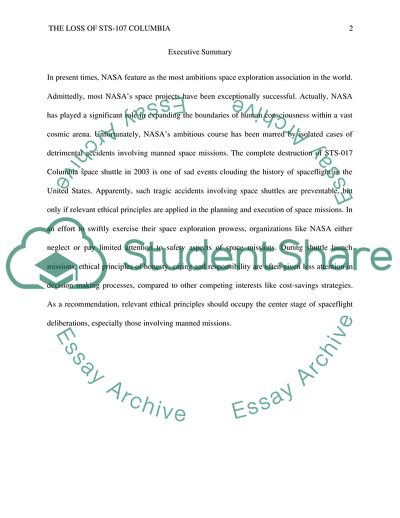Cite this document
(Ethical Issues in the Loss of STS-107 Columbia Case Study Example | Topics and Well Written Essays - 1500 words, n.d.)
Ethical Issues in the Loss of STS-107 Columbia Case Study Example | Topics and Well Written Essays - 1500 words. https://studentshare.org/ethics/1868607-the-loss-of-sts-107-columbia
Ethical Issues in the Loss of STS-107 Columbia Case Study Example | Topics and Well Written Essays - 1500 words. https://studentshare.org/ethics/1868607-the-loss-of-sts-107-columbia
(Ethical Issues in the Loss of STS-107 Columbia Case Study Example | Topics and Well Written Essays - 1500 Words)
Ethical Issues in the Loss of STS-107 Columbia Case Study Example | Topics and Well Written Essays - 1500 Words. https://studentshare.org/ethics/1868607-the-loss-of-sts-107-columbia.
Ethical Issues in the Loss of STS-107 Columbia Case Study Example | Topics and Well Written Essays - 1500 Words. https://studentshare.org/ethics/1868607-the-loss-of-sts-107-columbia.
“Ethical Issues in the Loss of STS-107 Columbia Case Study Example | Topics and Well Written Essays - 1500 Words”. https://studentshare.org/ethics/1868607-the-loss-of-sts-107-columbia.


